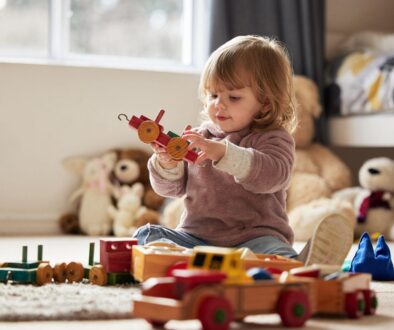Parenting through Challenges

Although there are many beautiful and joyous moments of parenting, there can also be stressful and frustrating moments. Often times, those moments are not discussed or shown on social media outlets. It can be easy to fall into a cycle of comparing your children with other people’s children or getting bogged down by other people’s advice on how you should be parenting.
If you find yourself feeling frustrated, consider these questions:
- Are needs for consistency, routine, and a feeling of security being considered? Children often thrive on routines and consistency. Take a look at your morning, nap, and bedtime routines to see if they can be made more predictable for children.
- Are children’s needs and personalities taken into account when planning family activities? Some events can be setting your children up for failure if they are not age appropriate or do not account for your children’s personalities and needs. For example, an event scheduled in place of nap time may increase crankiness for your child. Similarly, a child who does not like sensory experiences may not thrive during a beach excursion.
- Do you find yourself often distracted by to-do lists or social media? Try to find ways to make yourself more present and in the moment. You can include mindfulness activities for you and your children throughout the day to reduce stress and create more togetherness.
Consider these tips to limit daily challenges:
- Choose Battles Wisely: Children naturally have moments when they’re tired, stressed, or just want to push limits. Try to focus energy on the conflicts that are really important and avoid unnecessary power struggles. For example, it might not really matter what shirt your child wears, but it is imperative that your child holds your hand in a busy parking lot.
- Don’t Overreact To Little Things: Your child may be at an age where they know right from wrong and wants to see how far they can push the boundaries. Kids often express feelings by acting out. Remaining calm during these outbursts can actually limit future acting out.
- Take Some Time to Calm Down: Instead of adding to the chaos when your child is misbehaving, take a moment to calm down. As long as your child is in a safe place (their room or their crib), it is okay to step away for a moment to collect yourself. Often times, it is more productive to talk to your child about their behavior when you are both calm.
- Be A Positive Role Model: Remaining positive even when things are tough, gives your child a positive model of behavior. Being a positive role model means being attentive and present with your child (step away from social media), being kind to others, and also taking care of yourself.
- Reward Good Behavior: Taking something away as discipline when a child doesn’t listen is a popular choice but you can also try to give a more positive spin. Instead of taking something away, try rewarding them for making good choices. Be genuine and specific in your praise. Children love the opportunity to make you proud.





